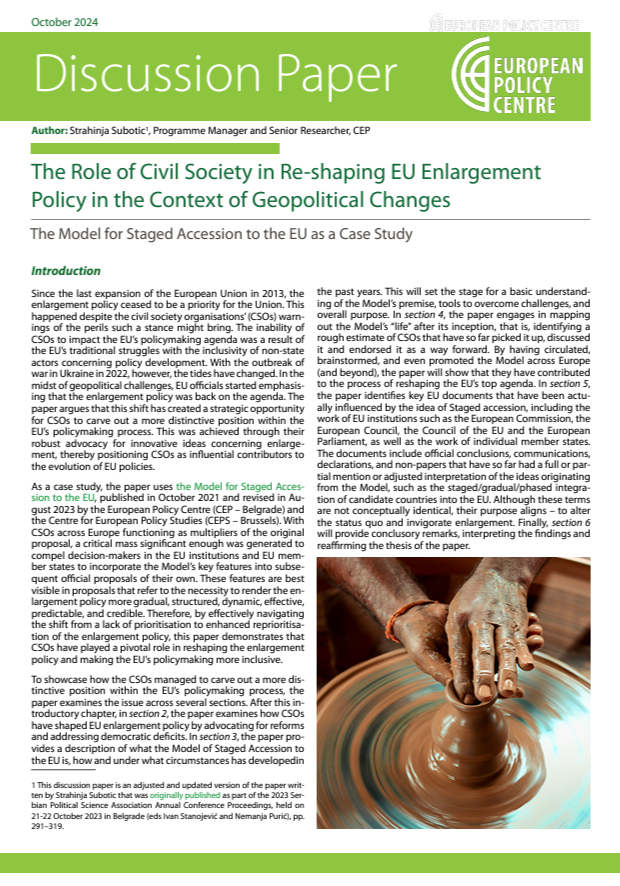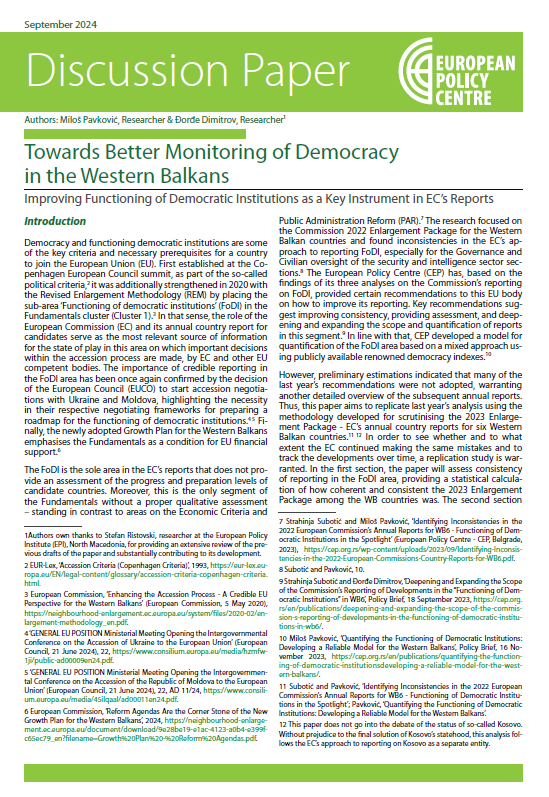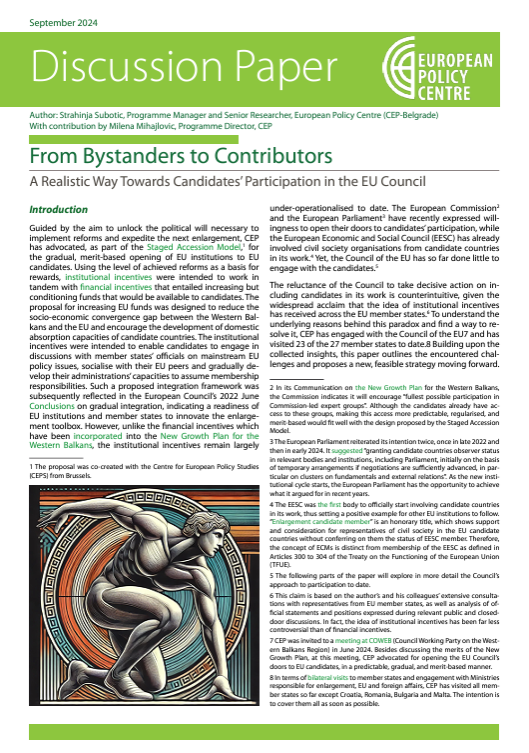Headquarters: Svetog Nauma 7, 11000
Office address: Đorđa Vajferta 13, 11000
Phone:: +381 11 4529 323
EU’s approach towards the Western Balkans (WB), from the very beginning, was focused on establishing good-neighbourly relations and promoting regional cooperation, which were and still are a precondition for WB’s association and later accession to the EU. Starting from the Stabilisation and Association Process in 1999, the EU attempted to stabilise this post-conflict area and prepare WB countries for membership by proposing and supporting various regional initiatives. However, a quick glance at the past decade illustrates that in the face of multiple crises, the European Union has been unable to keep the enlargement of the WB high on its agenda. When the then-newly elected President of the European Commission, Jean-Claude Juncker presented his programme in 2014, he explicitly stated that “in the next five years, no new members will be joining us in the EU,” causing strong concerns that the Western Balkans would fall into the background.
Recognising the danger of leaving the region empty-handed with such discouraging discourse at play, while accounting for the potential of third, non-EU actors’ influence to grow, then-German Chancellor, Angela Merkel, launched the Berlin Process. Although the aim was to keep the WB on the European path while enhancing the intra-regional interconnectivity, over time, it became clear that despite some successes, the Berlin Process had underdelivered. The countries’ progress toward the EU remained at a standstill, whereas numerous initiatives launched under its framework have not been fully implemented. Therefore, certain WB countries started to explore alternative avenues and pursued deeper regional integration on their own, all while maintaining EU membership as the ultimate goal. This gradual process, which started as “Mini-Schengen”, eventually materialised as the Open Balkan initiative.


